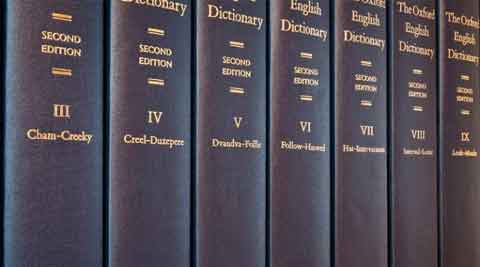Opinion Aiyo, aiyyaiyyo
India’s flagship exclamation enters the OED. How long before they accept the intensifier?

Every quarter, to the dismay of English purists who still hold their teacup with the pinky delicately raised, the Oxford English Dictionary has been letting in all sorts of foreign-sounding words from the world over. Recently, there was jubilation worldwide when the dictionary of dictionaries marked the birth centenary of Roald Dahl by including his fabulous coinages, like “splendiferous” and “human bean”. And quite unnoticed amidst the din, the Tamil aiyo also crept in and made itself at home.
Tamil? The OED divides the parentage of the interjection between Tamil and Sinhala. It reached the English readership in 1886, through Chambers’s Journal. The dictionary also ascribes the variants aiyoh and aiyah to Chinese, and cites first use in 1937 in the Singapore Free Press. Aiyo is clearly a word of power with a colourful history, a word which bubbled up from an east Asian melting pot. It is fully loaded, and the OED has not gone into the numerous variants popular across the region — aiyyo, ayyia, uyyo and the rare, mortified ujjo.
Alas, the OED has not fully appreciated the depth, power and dignity of this word, dismissing it as “of imitative origin”. However, it could be the most broad-spectrum interjection in the region, compactly expressing a range of feelings from dismay to derision. It is certainly the only broad-spectrum interjection which is not obscene. The world over, expressive words which body forth a range of human emotions are energetically biological in nature, and usually exhort taboo transgressions. Not so with aiyo. A vowelly word with only a hint of a consonant, it seems to have no content, and yet is capable of expressing the entire condition of the human bean. The OED has admitted a rare word of power into its pages. Now, it must open its arms to the intensifier: aiyyaiyyo.




